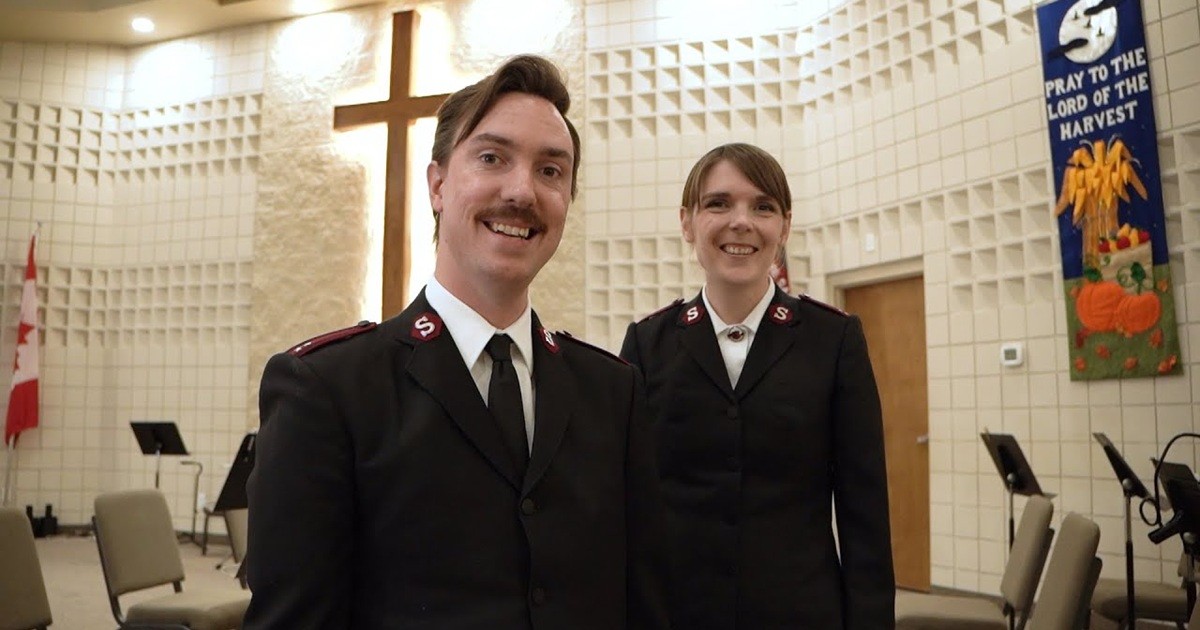 If Mary was perplexed by the angel's greeting, she must have been floored by his news. Gabriel began, “Greetings, favoured one! The Lord is with you” (Luke 1:28 NRSV). Then he went on to say, “And now, you will conceive in your womb and bear a son, and you will name him Jesus” (Luke 1:31). Mary was a woman in a man's world, an unmarried woman in a society of strict sexual codes. Perplexed. Baffled. Jarred. Mary's world was turned upside down.
If Mary was perplexed by the angel's greeting, she must have been floored by his news. Gabriel began, “Greetings, favoured one! The Lord is with you” (Luke 1:28 NRSV). Then he went on to say, “And now, you will conceive in your womb and bear a son, and you will name him Jesus” (Luke 1:31). Mary was a woman in a man's world, an unmarried woman in a society of strict sexual codes. Perplexed. Baffled. Jarred. Mary's world was turned upside down.
In the midst of this turmoil, however, Mary exhibited a remarkable characteristic. True, she was perplexed, but she also “pondered what sort of greeting this might be” (Luke 1:29). After the birth of her son, shepherds visited her in the Bethlehem stable. They conveyed all that the angels had sung to them on the surrounding hills. While others were amazed, Mary “treasured all these words and pondered them in her heart” (Luke 2:18-19).
The word used for “pondering” in Luke's Gospel has the sense of “throwing together.” Mary had the capacity to throw the news of Gabriel alongside the encouragement of Elizabeth, to toss in the chorus of the angels, then add the affirmations and warnings of Simeon and Anna (see Luke 2:25-38). Mary refused to jump to quick conclusions; she refused the quick answer to her perplexity. She was prepared to think it over, to ponder.
It's instructive to read these early chapters of Luke's Gospel during the month of December. A pondering Salvationist during December is an oxymoron. If there is a month in the year when we don't have time to think, it's the Christmas season. We stand at Christmas kettles, pack hampers, play carols in hospitals, host meals for the homeless and work hard to communicate with the media. Many of us come to the end of the Christmas Eve service just a little fatigued. Ponder during the season of Advent? Not active Salvationists!
Yet this is precisely the time to do so. Many insights into God's ways are conceived in the month of December. More than once I have stood at one of our Christmas kettles when a child walked by with an adult. Moments later the same child came back to the kettle, reached up and put some money in it. “When I told her what you did with the money,” explained the adult, “she wanted to put her allowance in the kettle.” Our Christmas kettles have taught me much about trust.
It has also been my privilege to play Christmas carols with other Salvationist musicians in various institutions, including hospitals. Apart from the occasional complaint that our music was too loud, patients and staff gathered in appreciation. We took the music of Christmas into their world; there is something about that which resonates with the Incarnation.
It becomes evident in Luke's Gospel that while Mary pondered, she didn't do it in a vacuum. Mary was surrounded by a communal conversation. Elizabeth shared news of her own child who was to be a new Elijah (see Luke 1:17); Simeon thanked God for the child Jesus who in the words of Isaiah was to be “a light for revelation to the Gentiles and for glory to your people Israel” (Luke 2:32); and Anna began “to speak about the child to all who were looking for the redemption of Jerusalem” (Luke 2:38). Our personal reflections best take place within the wider community. Ideally this includes the voices of people we trust and the greater story of God's salvation.
Mary still didn't fully understand, but her words to Gabriel stand as a profound witness to her capacity to trust: “Here am I, the servant of the Lord; let it be with me according to your word” (Luke 1:38). Mary trusted God in this moment, and she also praised him: “My soul magnifies the Lord, and my spirit rejoices in God my Saviour…. He has brought down the powerful from their thrones, and lifted up the lowly; he has filled the hungry with good things, and sent the rich away empty” (Luke 1:46-53). Mary trusted the God who turns the world upside down, even though her own life was in turmoil.
That's worth pondering, especially during the month of December.
Illustration: The Annunciation, Henry Tanner (1898), Philadelphia Museum of Art
 Major Ray Harris is a retired Salvation Army officer. He enjoys watching Corner Gas reruns and running in Winnipeg's Assiniboine Park.
Major Ray Harris is a retired Salvation Army officer. He enjoys watching Corner Gas reruns and running in Winnipeg's Assiniboine Park.









Leave a Comment